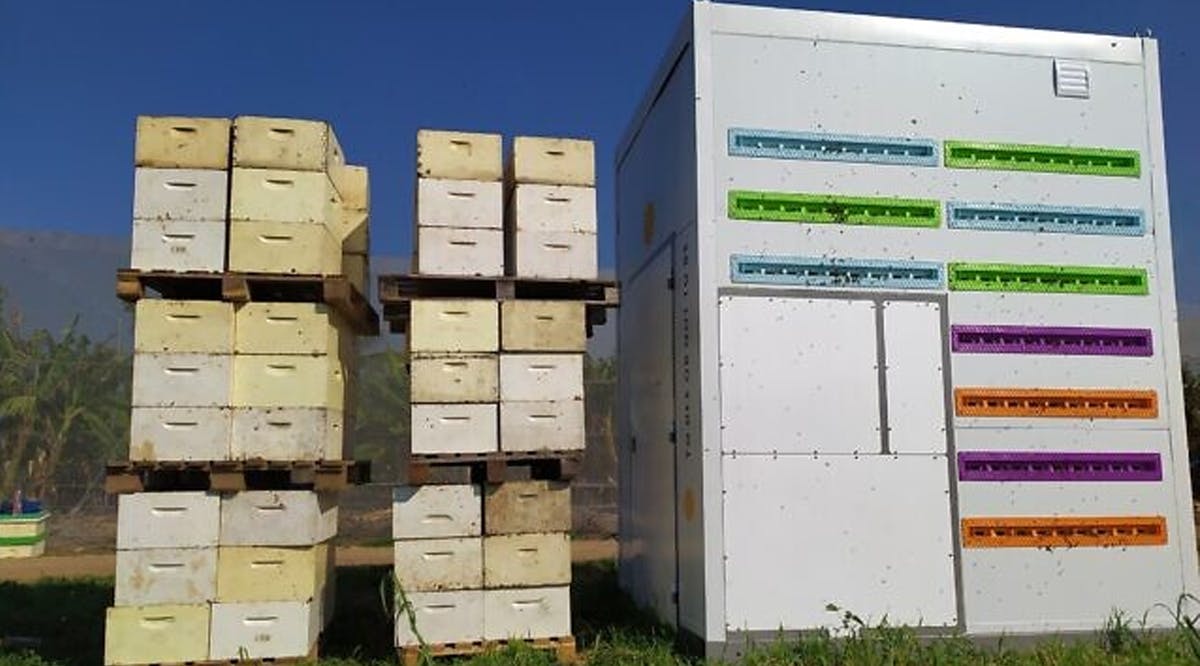
Israeli AI Startup Bets on Robotic Beehives to Save Global Bee Populations
The Beehome is a solar-powered, converted container that brings together robotics, artificial intelligence, imaging, a software platform, and a mobile application to monitor and care for honeybees around the clock. The device can house up to 24 bee colonies and automatically controls for climate and humidity conditions, detects and eliminates pests and parasites, identifies when a colony is preparing to swarm, sends alerts when human intervention is needed, and even harvests the honey the bees produce.
“The Beehome works with 24 colonies, 12 on each side. And in the center, there’s a robotic system that moves and monitors [the colonies] 24/7 using computer vision, machine learning, and neural networks. It dispenses food, water, medicine if there is a disease or pest, it knows if it’s too hot or cold — the robot can treat all of this,” serial Israeli entrepreneur, and co-founder of the Beehome, Saar Safra said.
Controlling and monitoring all these conditions in real-time ensures that yields improve, pollination occurs more efficiently, and honeybee populations are protected, he explained.
Bee populations certainly need protecting. Due to what Safra calls a “perfect storm” of climate change, habitat loss, excessive use of agricultural chemicals, parasitic mites, and various pathogens, bee populations have been declining for decades and the world “is losing about 40 percent of colonies every year.”
In the US, beekeepers lost an estimated 45% of their managed honeybee colonies between April 2020 and April 2021, marking the second-highest annual loss on record according to the most recent loss and management report issued by the Bee Informed Partnership.
It’s an astonishing figure given that “nearly 90% of the world’s wild flowering plant species depend, entirely, or at least in part, on animal pollination, along with more than 75% of the world’s food crops and 35% of global agricultural land,” according to the United Nations.
In addition, “pollinators contribute to crops that provide biofuels (e.g., canola and palm oils), fibers (e.g., cotton), medicines, forage for livestock, and construction materials. Some species also provide materials such as beeswax for candles and musical instruments, and arts and crafts,” according to the World Bee Project, a UK-based initiative advancing the integration of various technologies to help save the bees.
Indeed, technology is a much-needed solution to protect bee populations and help them thrive – at the risk of losing important processes that bees facilitate, Safra said. (TOI / VFI News)
“God, we ask that you oversee those who aim to protect Your planet and Your creation.”